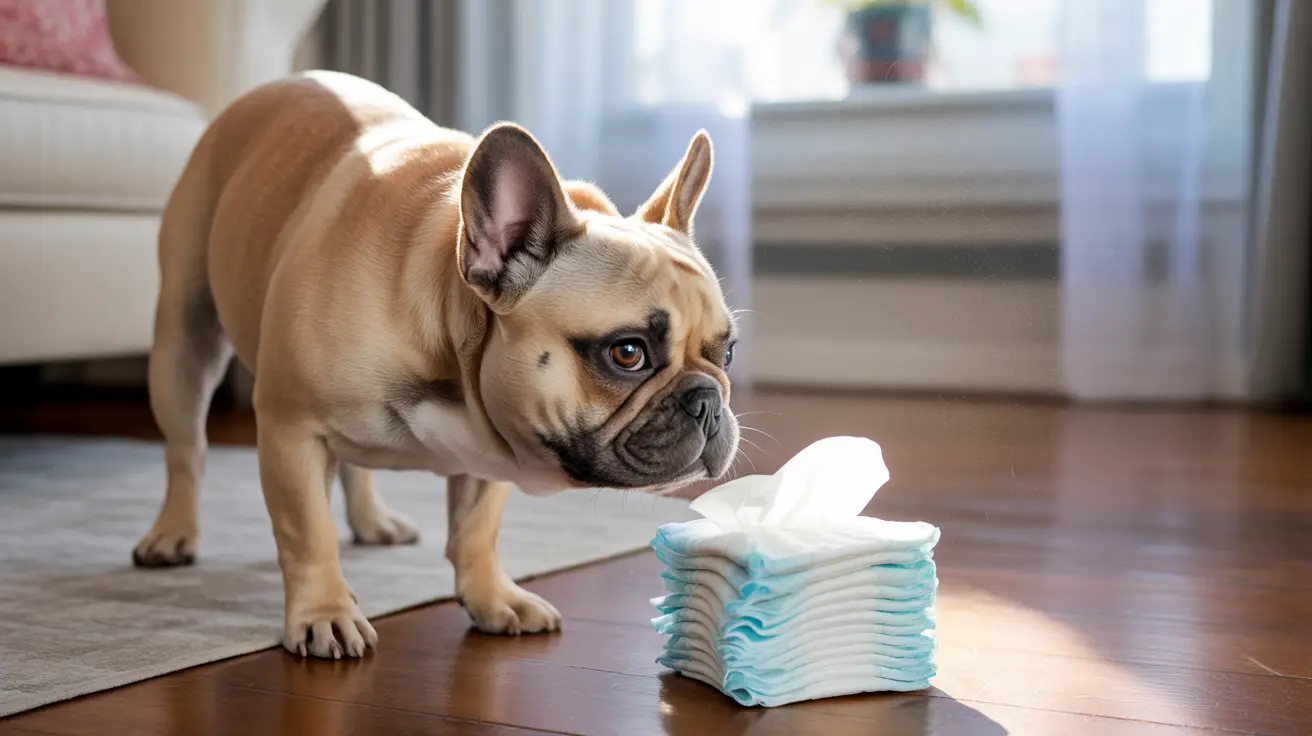As a pet owner, you might be tempted to reach for baby wipes when your dog needs a quick clean-up. However, using baby wipes on dogs can pose significant risks to your furry friend's health and well-being. Understanding why these common household items aren't suitable for pets is crucial for maintaining your dog's skin health and preventing potential complications.
In this comprehensive guide, we'll explore the dangers of using baby wipes on dogs, explain the scientific reasons behind these concerns, and provide safe alternatives for keeping your pet clean and healthy.
Understanding Dog Skin vs. Human Skin
The fundamental reason why baby wipes aren't suitable for dogs lies in the biological differences between human and canine skin. Dogs have a more alkaline skin pH (ranging from 5.5 to 7.2, sometimes up to 9.1) compared to humans' more acidic skin pH (5.4-5.9). This difference means that products designed for human use, including baby wipes, can disrupt your dog's natural skin barrier.
Hidden Dangers in Baby Wipe Ingredients
Baby wipes contain various chemicals that can be harmful to dogs, including:
- Propylene glycol
- Parabens and phthalates
- Synthetic fragrances
- Alcohol-based preservatives
- Chemical moisturizers
These ingredients can cause skin irritation, allergic reactions, and potentially serious health issues if ingested when your dog licks their fur or paws after cleaning.
Signs of Adverse Reactions to Baby Wipes
Watch for these warning signs if you've used baby wipes on your dog:
- Excessive scratching or licking
- Redness or inflammation
- Dry, flaky skin
- Hair loss
- Behavioral changes due to discomfort
Safe Alternatives for Cleaning Your Dog
Pet-Specific Wipes
Invest in specially formulated dog wipes that are:
- pH-balanced for canine skin
- Free from harmful chemicals
- Specifically tested for pet safety
- Hypoallergenic and gentle
Natural Cleaning Solutions
Consider these safe alternatives:
- Plain, damp washcloth with warm water
- Pet-specific waterless shampoo
- Unscented baby washcloths (water only)
- Reusable pet cleaning mitts
Best Practices for Dog Cleaning
Follow these guidelines to keep your dog clean safely:
- Use pet-specific products exclusively
- Clean paws after walks with appropriate pet wipes
- Regular grooming with proper pet-safe tools
- Consult your veterinarian about specific cleaning needs for your dog's breed
Frequently Asked Questions
Can I safely use baby wipes to clean my dog's paws or fur?
No, baby wipes are not safe for use on dogs. They contain chemicals that can irritate your dog's skin and cause health issues if ingested through licking.
Why are baby wipes not recommended for dogs compared to pet-specific wipes?
Baby wipes are formulated for human skin pH and contain ingredients that may be harmful to dogs. Pet-specific wipes are designed to match canine skin pH and use safer ingredients.
What ingredients in baby wipes can be harmful or toxic to dogs?
Harmful ingredients include propylene glycol, parabens, synthetic fragrances, alcohol-based preservatives, and chemical moisturizers that can cause skin irritation or toxicity if ingested.
How does the difference in skin pH between humans and dogs affect using human wipes on pets?
Dogs have more alkaline skin (pH 5.5-7.2) compared to humans (pH 5.4-5.9). Using human products can disrupt this natural pH balance, leading to skin problems and increased risk of infections.
What are the best safe alternatives to baby wipes for cleaning my dog between baths?
The safest alternatives include pet-specific wipes, damp washcloths with plain water, pet-safe waterless shampoos, and reusable pet cleaning mitts designed for dogs.
Conclusion
While baby wipes might seem like a convenient solution for cleaning your dog, they pose unnecessary risks to your pet's health. Instead, opt for pet-specific products or simple alternatives like warm water and a clean cloth. Your dog's skin health is worth the extra consideration, and using appropriate cleaning products will help maintain their comfort and well-being in the long run.






